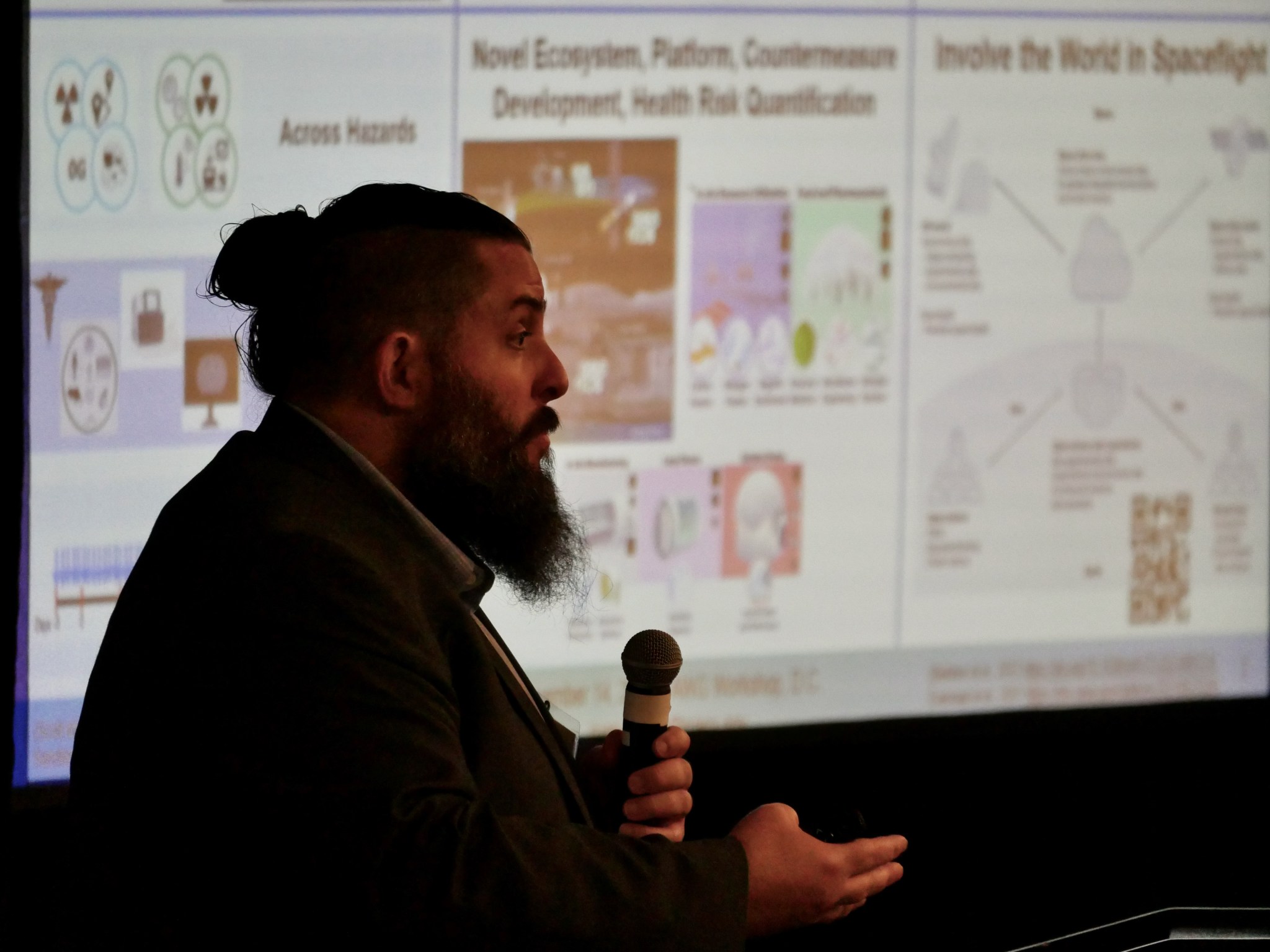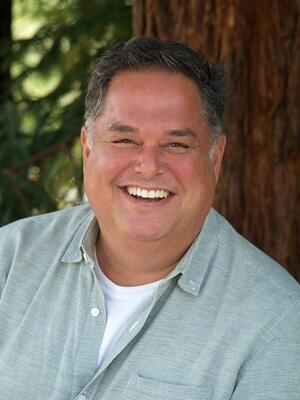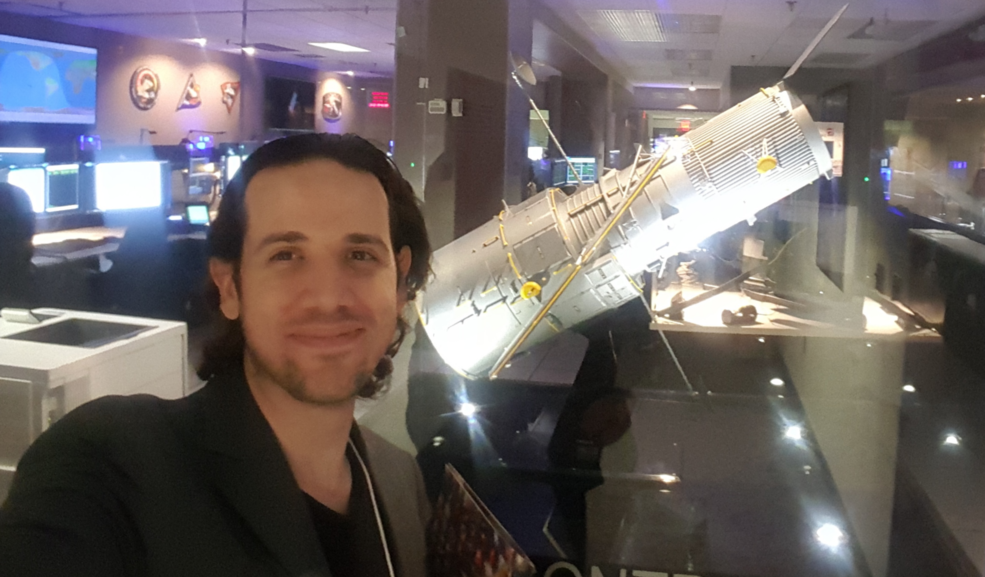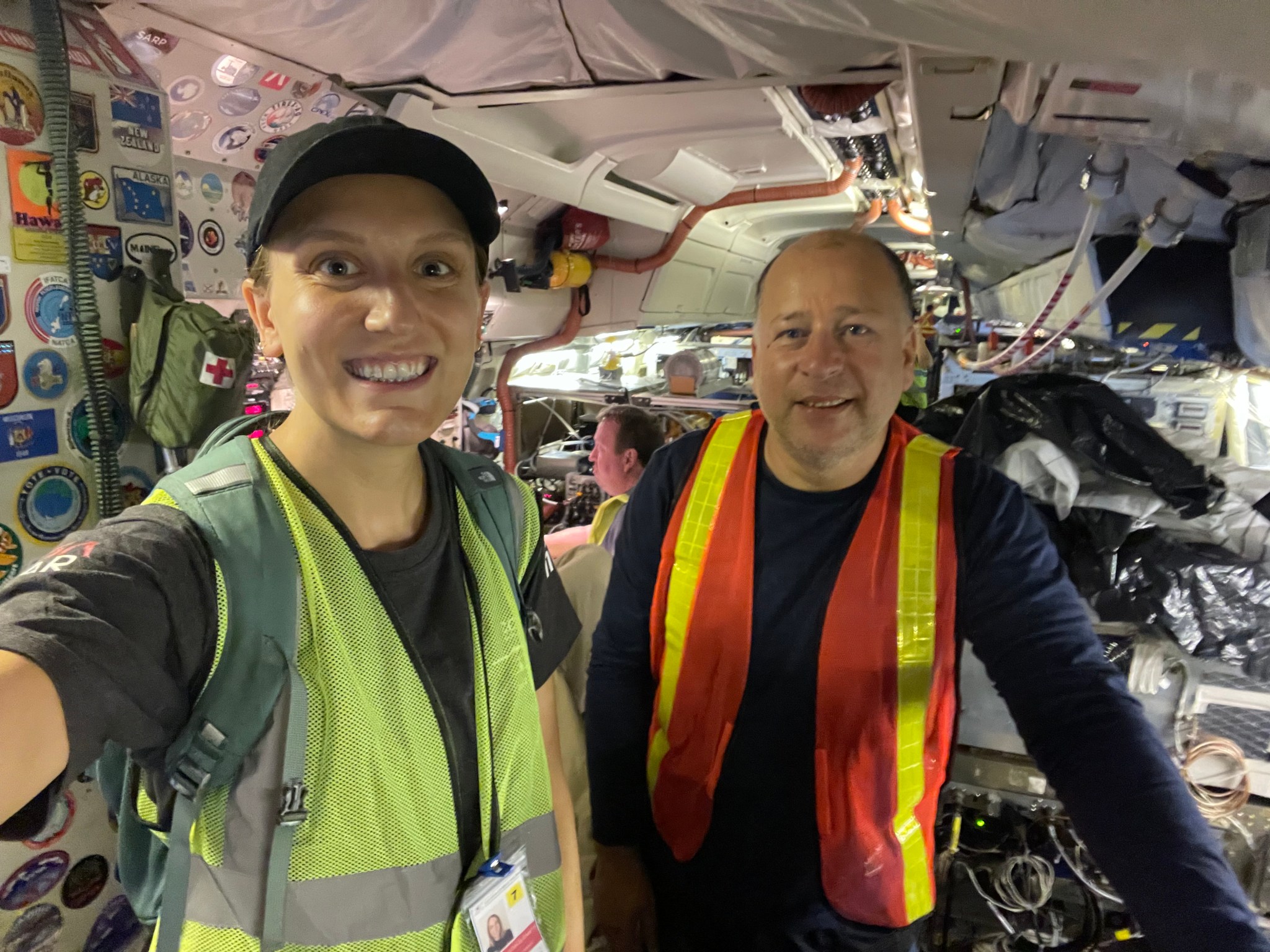
The NASA Ames Science Directorate recognizes the outstanding contributions of (pictured left to right) Ryan T. Scott, Mike Kubo, Ehsan (Sam) Gharib-Nezhad, and Kristen Okorn. Their commitment to the NASA mission represents the talent, camaraderie, and vision needed to explore this world and beyond.

Space Biosciences Star: Ryan T. Scott
Ryan Scott, a Space Biosciences Research Branch (SCR) scientist, serves as the Science Lead for the Open Science Data Repository (OSDR) and chairs the Ames Life Sciences Data Archive (ALSDA) analysis working group, where he guides the efforts of nearly 200 professionals. He contributed significantly to the Space Omics and Medical Atlas (SOMA) Nature publication package, the largest-ever collection of data for aerospace medicine and space biology.

Space Science Star: Mike Kubo
Mike Kubo is an indispensable member of the Exobiology Branch (STX) with expertise in astrobiology and biogeochemistry who plays a vital role in the conduct of research and outreach. While always a star in the branch, most recently, Mike saved the day by noticing the imminent failure of a shared research-grade freezer in building N239 that stored irreplaceable samples, and quickly identified a replacement.

Space Science Star: Ehsan (Sam) Gharib-Nezhad
Dr. Ehsan (Sam) Gharib-Nezhad is a data and research scientist with the Planetary Systems Branch (STT). A specialist in exoplanetary atmospheres and artificial intelligence (AI)/machine learning (ML), Sam was recently selected as lead for the Habitable Worlds Observatory (HWO) working group for AI/ML.

Earth Science Star: Kristen Okorn
Kristen Okorn is a Research Scientist with the Bay Area Environmental Research Institute (BAERI), affiliated with the Atmospheric Science Branch (SGG). She is one of the two center coordinators for NASA's Disasters Response Coordination System, and the PI for the recently awarded NASA Mentoring and Opportunities in STEM with Academic Institutions for Community Success (MOSAICS) seed project focused on year-round hands-on learning and mentoring of three undergraduate students from a minority-serving institution (Whittier College) in the use of low-cost sensors and satellite-based measurements to study regional air pollution.






